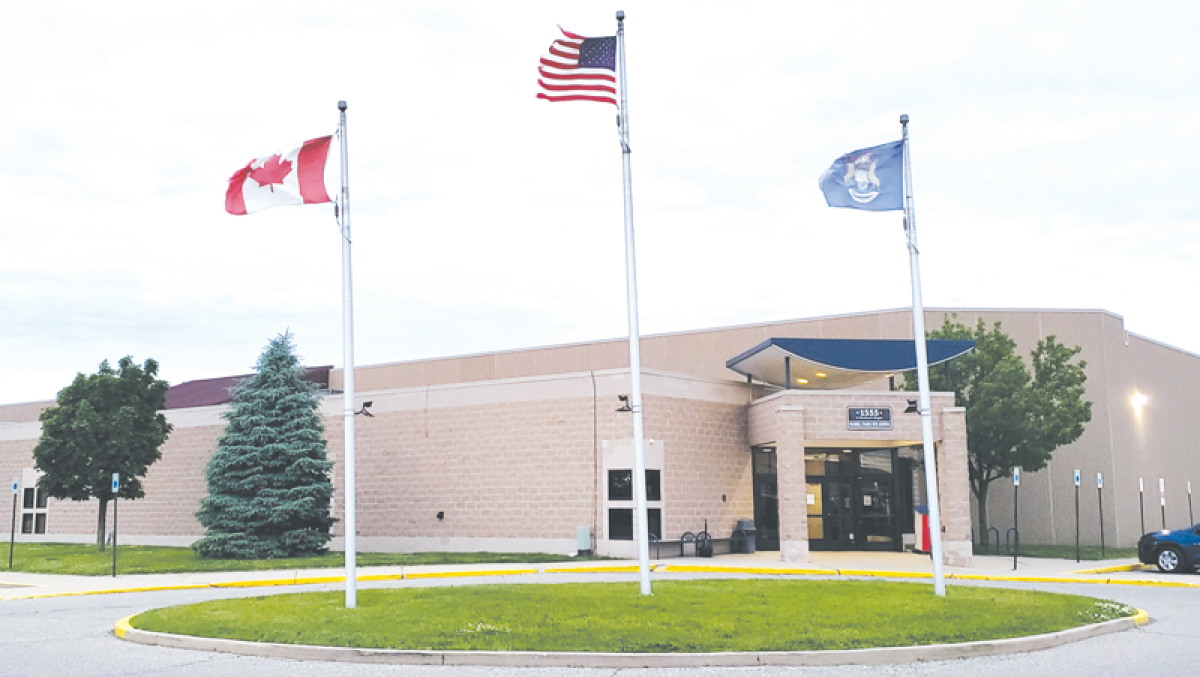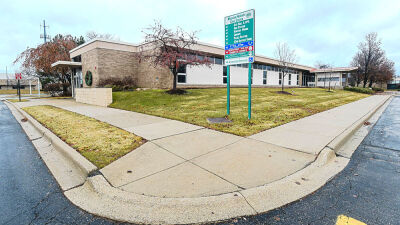HAZEL PARK — The Hazel Park City Council recently approved a budget for the 2024-25 fiscal year that features a slightly lower city tax rate yet higher revenues due to growing property values and increased development around town.
The budget was unanimously approved May 14 and clocks in at $45 million, up from the current fiscal year’s amended total of $43 million. About $20.2 million is for the general fund. The new fiscal year begins July 1.
“This year’s budget is balanced, and we are maintaining city services. We were able to use grant money to improve our parks and recreation facilities, and we are starting to focus on local road repairs,” said Ed Klobucher, the city manager. “Things are good now, but there are challenges on the horizon. The (American Rescue Plan Act) dollars from the federal government were not allocated fairly, and that placed cities like Hazel Park at a competitive disadvantage. Wage and medical inflation will continue to be problematic, but so far, we have been able to retain our talented workforce.”
The city millage rate is set at 38.7975 mills. This is about 0.36 mill less than the current year. Property owners pay $1 for every $1,000 of taxable valuation, multiplied by the millage rate.
Within the millage rate, about 17 mills go toward general operations, about 2.1 mills are for waste collection, and nearly 2.2 mills are for the library. In addition, 2.8 mills are for the public safety special assessment, nearly 12.5 mills are for the fire protection special assessment, about 1.9 mills are for the Downtown Development Authority, and roughly 0.14 mill are for economic development.
The fire protection special assessment is through SMORSA — the South Macomb Oakland Regional Services Authority that funds fire operations in Eastpointe and Hazel Park. Its fiscal year 2024-25 rate was not set at press time, and the 12.5 mills are based on the current fiscal year, said Klobucher.
However, Laci Christiansen, the deputy city manager and finance director, said that if the SMORSA rate changes, it will likely be a slight decrease due to rollback.
She also explained that in general, Hazel Park homeowners will see a slight increase in the taxes they pay, due to an increase in assessed and taxable values, as their homes are worth more than they were before, which is “good for homeowners,” she said.
Christiansen added that while the city hasn’t yet received the millage rates from other taxing entities in the community, she anticipates a small decrease in the school rate due to construction bonds being paid off, which should help soften taxes.
The trash collection rates have increased about $26, and water rates have increased by 17 cents per cubic feet. Such costs are largely beyond the city’s control, Christiansen noted, pointing out that they’re passed down from outside contractors and suppliers.
The final result is a balanced budget with no plans to use the unassigned fund balance, currently set at about $2.7 million.
About $300,000 of the $45 million budget will go toward capital improvements, including the vehicle fleet and parking lot replacements at Green Acres Park. Some of that is covered by grants for efforts such as renovations at the Hazel Park Community Center.
About $800,000 has been allocated for major and local street repairs, one of which will be completing four blocks of Woodward Heights Boulevard from Dequindre Road to the Viking Ice Arena. That particular project is funded in part by the Local Road Improvement Project through Oakland County. Woodward Heights is also set to be re-striped all the way in the next fiscal year, depending on when re-pavement is complete. The bulk of the other major and local repairs involve patchwork replacement.
There are no changes in staffing anticipated in the new fiscal year.
Christiansen said that the new budget benefits from increased revenues due to not only rising property values, but also new construction and development around town. For example, Hazel Park Viking Ice Arena is privately held now, managed by Black Bear Sports Group, which has added more than $50,000 in property taxes.
“It was really wonderful that they (Black Bear) were able to take that property off our hands. Hopefully they can make it prosper,” said Mike Webb, the mayor of Hazel Park. “It’s good for a lot of kids and people who love skating and ice sports like hockey.”
The mayor said that the extra revenues make it easier for the city to focus on issues like local road repair.
“We’ve had a lot of extra traffic because of all the construction on the freeways and other updates on Eight Mile and such. It’s taken a toll on our roads, and we’re hoping that (the Michigan Department of Transportation) will subsidize some of the repairs we have to do in the future on some of our local roads to keep them maintained,” Webb said. “We’ve struggled with that, keeping it all in good shape so that our roads don’t deteriorate. All communities would benefit from something like the state adding a quarter of a percent to the gas tax and using that money strictly for cities and towns to maintain their roads, based on a scale of miles per road. And it helps make the state look good, too, when they help communities do better housekeeping.”
He said a top priority for the city is also retaining its workforce.
“We’ve been thinking hard about how to keep our staff in place. We’re always looking to maintain our staff and their professionalism over the years,” Webb said. “We, at the city, are also trying to keep up with inflation. It unfortunately not only takes a toll on you and your home, but also on the city and the businesses within it as well. Everyone’s feeling the pinch.”
 Publication select ▼
Publication select ▼




















